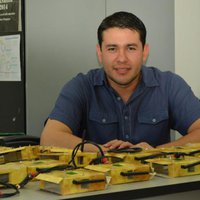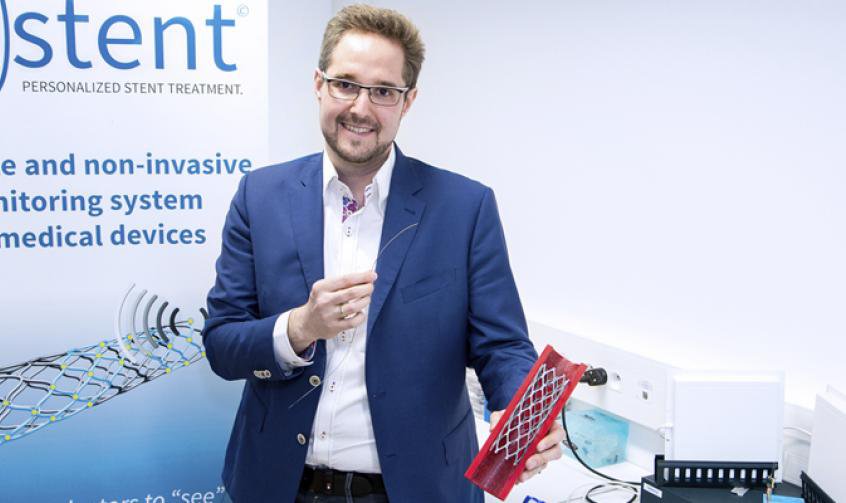"The obstruction of coronary arteries that can stem from a heart attack, force around five million people to have stent implants every year, according to estimations by diverse sources like the OECD. This small metallic mesh tube enlarges arteries and lets blood flow normally but its implantation also damages the arterial wall. To repair it, the body triggers a coagulation response that can create new blockages or thromboses. To avoid this natural protection, patients must take anticoagulant drugs that can cause side effects if they are administered for too long or too short a duration. As a result, up to 10% of patients have complications related to their stent and one out of every two who suffer a thrombosis can die.
Franz Bozsak, the researcher from the École polytechnique (France), was certain that there must be a better solution, and therefore focused his doctoral thesis on the design of better stents. His insight has put him among the 10 winners of MIT Technology Review´s Innovators Under 35 France. Bozsak remembers: “I was trying to find the optimal implant but I still thought ‘how would I know if it was really working?’”. The restlessness of the youngster went beyond his thesis until he founded his own entrepreneurial project, which has been given the name Instent.
The difference from current stents, which the young innovator criticises for their tendency to forget about their impact of being implanted, is that Bozsak’s devices aspire to incorporate hundreds of micro sensors. These would allow patients as much as doctors to monitor recuperation and adjust medication to each person’s needs. “Some patients stop taking medication and put themselves in danger,” explains Bozsak. He therefore explains that his “idea is to create a link between the user and the implant so that they are aware of how the treatment progresses.”
Other “intelligent” stents had emerged which were capable of measuring pressure but none of them passed the lab phase and were unable anticipate artery blockage, explains Bozsak. Instent has overcome these barriers and its devices keep standard sizes and operations but also incorporate hundreds of micro sensors that through wireless connections, allow you to monitor not only artery blockage but also the recovery process from the implant.
This project has already won various prizes which have allowed Bozsak to form a team of seven people from medical and technology spheres. Furthermore, he has raised over 1.5 million euros from private and public investors, with which he has advanced the implant’s development, which has already been tried in two animal experiments.
“Personalised medicine is the future! To adjust treatments to the needs of the patient is the best for them and for society,” declared the project director of WBC Incubators, Emmanuelle Gibault-Nowak, who is part of the jury for Innovators under 35 France.
The startup is in its development phase and its intelligent stents are still not commercialised but it is already planning to start preclinical trials in less than a year. Keeping in mind the recent move of Apple towards health monitoring, there’s no doubt that this type of technology will soon be established."




